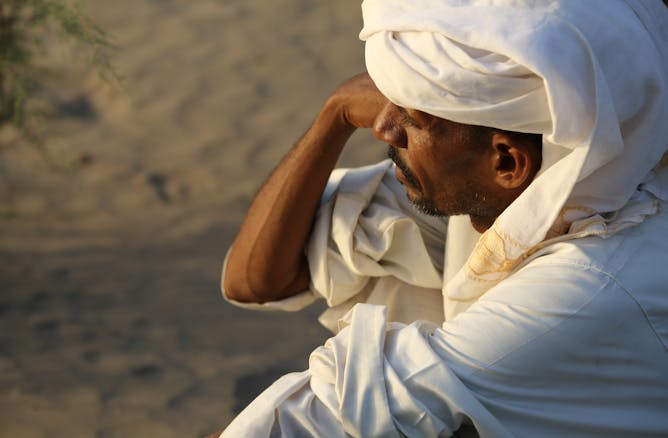|
|
|
|
The allure of “passive income” has captured the attention of many online, particularly on platforms like TikTok where influencers tout the idea of making money without having to lift a finger.
With so many people sharing tips and success stories online, it’s easy to get caught up in the promise of financial freedom. But is passive income really as rosy as it seems?
Today in The Conversation Canada, Jake Pitre from Concordia University takes a closer look at the growing passive income trend and unravels some of the myths surrounding it.
Pitre explains that it’s essential to approach these opportunities with caution and skepticism. While some influencers may claim to earn six figures through so-called passive income, the truth is many of these ventures are anything but and require significant effort. Owning a rental property, for example, is often peddled as a form of passive income.
He writes: "Get-rich-quick schemes are nothing new, and the ones currently being shared by 'finfluencers' are typically rife with pitfalls, from a complete lack of regulation or accountability, to blurring lines between regular social media content and advertisements."
Also today:
All the best.
|

|
Eleni Vlahiotis
Assistant Editor, Business + Economy
|
|

Given the current state of the economy and governmental policy, it’s unsurprising that so many are lured by the appeal of passive income.
(Shutterstock)
Jake Pitre, Concordia University
The idea of passive income is often glamorized, but the reality is that many of these ventures require significant effort.
|

A raven lands on the roof of a barn as thick smoke from wildfires obscures the sun near Cremona, Alta., in May 2023.
THE CANADIAN PRESS/Jeff McIntosh
Junaid B. Jahangir, MacEwan University
Mainstream economics has been complicit in the climate change crisis as it falsely treats climate change as a mere side-effect of production or a minor aberration.
|

Fat stigma can take the form of overt discrimination, but it is often insidious, pervasively entrenched into our society and environment.
(Shutterstock)
Megan Lindloff, Western University; Angela Meadows, University of Essex; Rachel Calogero, Western University
Weight stigma doesn’t have to be malicious or targeted directly at a person to cause harm. Fat microaggressions lead to poorer health, well-being and life outcomes among fat people.
|

While racist stereotypes have faced increasing criticism in recent years, anti-Black racism endures, sustained in part by a form of white fragility.
(Shutterstock)
Amir Al-Azraki, University of Waterloo
Insights from the book White Fragility also shed light into racism in Arab society.
|

Pacific herring swimming through a bull kelp (Nereocystis luetkeana) forest on Vancouver Island, B.C.
(Fernando Lessa)
Samuel Starko, The University of Western Australia; Brian Timmer; Christopher Neufeld, University of British Columbia; Julia K. Baum, University of Victoria
Kelp forests around the world, and in Canada, are under threat. New research sheds further light on the health, and resilience, of these crucial ecosystems.
|

Language matters to law. Changes in how words are used can impact our ability to know about people’s lives and protect their rights. Protestors gather at the Alberta legislature during a rally for trans rights in Edmonton, Feb. 4, 2024.
THE CANADIAN PRESS/Amber Bracken
Debra M Haak, Queen's University, Ontario
Transparent public discussions are needed around how ‘sex,’ ‘gender identity’ and ‘gender expression’ are being defined and given effect in education, law, public policy and beyond.
|
La Conversation Canada
|

Le Canada s'est dotée d'une charte afin de protéger les victimes d'actes criminels. Mais sa portée et ses pouvoirs sont insuffisants.
(Shutterstock)
Alain-Guy Sipowo, Université de Montréal
La Charte ne fait qu’énumérer une série de directives que doivent prendre en compte, selon leur bon vouloir, les acteurs du système de justice pénale, sans qu’il soit possible de les y contraindre.
|
Culture + Society
|
-
Mari Ellis Dunning, Aberystwyth University
Only five witches were executed in Wales, while thousands were sentenced to death in Scotland and England.
|
|
Health
|
-
Dan Baumgardt, University of Bristol
What’s the point of pubic hair? Does it serve an important purpose or is it a costly inconvenience? An anatomist explains the science.
|
|
Science + Tech
|
-
Dimitri Van Limbergen, Ghent University
Roman wines may have looked and tasted better than long assumed. The answer lies in their use of clay jars, a technique still used in modern winemaking in Georgia.
|
|
|
|
| |
| |
| |

|
| |
| |
| |
| |
| |
| |
|
|
|
|
|
|
|